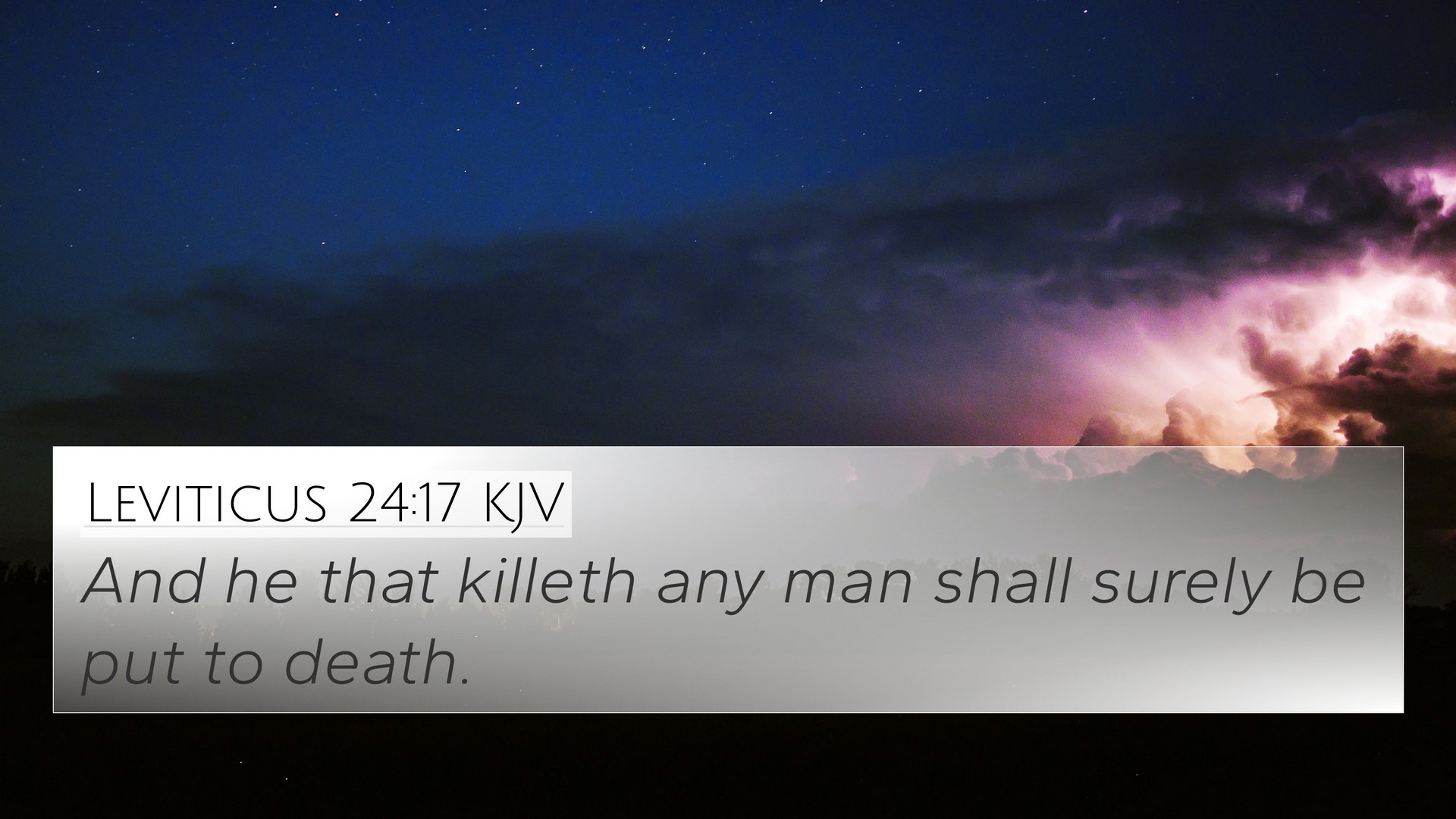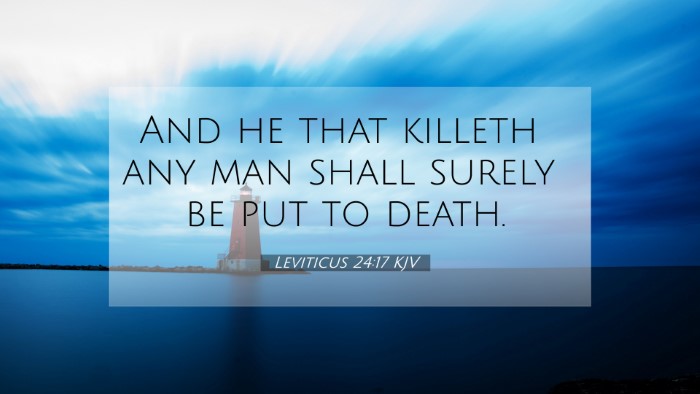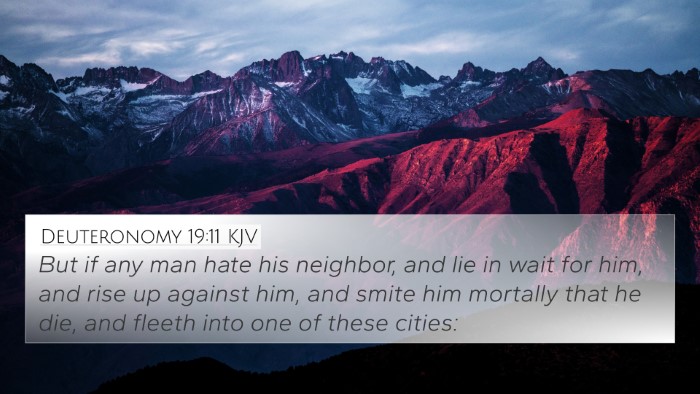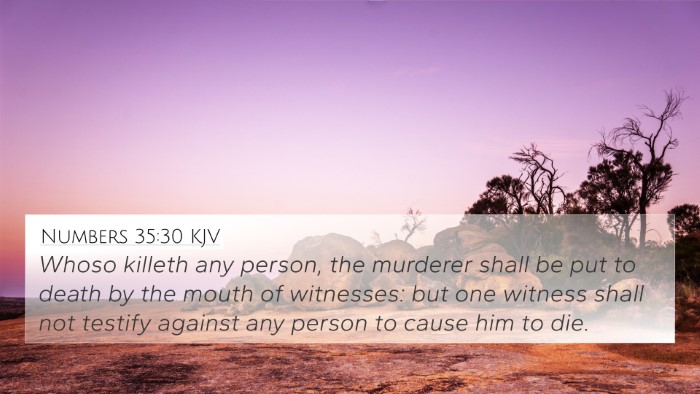Understanding Leviticus 24:17
Bible Verse: Leviticus 24:17 - "And he that killeth any man shall surely be put to death."
Summary of Verse Meaning
Leviticus 24:17 presents a stern mandate regarding the sanctity of human life. The implementation of the death penalty for murderers underscores the seriousness with which God regards the act of taking another person's life. This principle reflects divine justice and the importance of maintaining order and respect for life's sanctity within the community.
Interpretative Insights
The verse is often interpreted through various biblical commentaries, which help elucidate its meaning:
- Matthew Henry: Emphasizes that the law represents God's fierce commitment to justice. Henry points out that this command serves both as a deterrent to potential offenders and as a means of societal protection.
- Albert Barnes: Highlights the principle that life is precious and that acts of violence violate divine law. Barnes asserts that the command signifies a response to the moral order established by God, affirming the need for a strong societal framework.
- Adam Clarke: Reflects on the broader moral implications of such laws. Clarke suggests that while this law addresses physical murder, it also serves as a call to respect and uphold life in all forms, urging against any action that might lead to harm against others.
Connections Between Bible Verses
Leviticus 24:17 can be linked to several other scriptures that elaborate on themes of justice, murder, and the value of human life. These connections highlight the continuity of biblical teachings across both the Old and the New Testament:
- Exodus 20:13: “Thou shalt not kill.” - A direct commandment reflecting the same principle upheld in Leviticus 24:17.
- Numbers 35:31: “Moreover ye shall take no satisfaction for the life of a murderer, which is guilty of death.” - Expands on the consequences of murder, reinforcing the finality of death as a punishment.
- Genesis 9:6: “Whoso sheddeth man's blood, by man shall his blood be shed.” - Indicates God's established order regarding punishment for the taking of life, which reinforces the weight of the law in Leviticus 24:17.
- Matthew 5:21-22: Jesus reaffirming and expanding on the commandment against murder, emphasizing that anger and hatred also lead to judgment.
- Romans 13:4: “For he is the minister of God to thee for good: but if thou do that which is evil, be afraid; for he beareth not the sword in vain: for he is the minister of God, a revenger to execute wrath upon him that doeth evil.” - Clarifies the role of authorities in carrying out justice as ordained by God.
- Deuteronomy 19:11-13: Discusses the cities of refuge and the justice system regarding murder, providing a framework for protection and penalization.
- 1 John 3:15: “Whosoever hateth his brother is a murderer.” - Connects the internal condition of the heart with external actions, reiterating the far-reaching nature of God’s law against murder.
Thematic Bible Verse Connections
For deeper understanding, it’s beneficial to explore thematic connections within the scriptures:
- Justice and Retribution: Many verses discuss God’s commitment to justice, which is evident in instances like Leviticus 24:17.
- Value of Life: A recurring theme throughout scriptures highlights God's creation of human life and its sacredness.
- Community Responsibility: These verses illustrate how laws affect community dynamics and emphasize collective moral accountability.
Cross-Referencing Biblical Texts
Using tools for Bible cross-referencing such as a Bible concordance or Bible cross-reference guide, one can identify thematic links between different sections of the Bible. This practice not only enriches understanding but also assists in sermon preparation and personal study.
Conclusion
Leviticus 24:17 serves as a poignant reminder of the seriousness with which God regards human life and the consequences of taking it unjustly. Exploring this verse alongside its cross-references not only facilitates a deeper understanding of the law but also opens discussions on justice, morality, and God's overarching plan for humanity.







